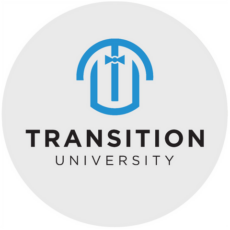

My Future, My Voice, My Choice
In our world, speaking up for what you need and believe can make a big difference. For students with disabilities, self-advocacy is not only a way to grow and thrive, but it can also help change their communities. Utah’s 2025 legislative session starts in January and will consider new laws about disability rights. This session will provide a great opportunity for young advocates to speak up and help shape the laws that affect their lives.
Here’s an easy guide to understanding self-advocacy, why it matters, and how students with disabilities can use their voices to create a better future.
What Is Self-Advocacy?
Self-advocacy means speaking up for yourself—sharing your needs, ideas, and goals. It’s about knowing your rights and making choices that lead to the life you want. For people with disabilities, self-advocacy helps ensure access to school, jobs, healthcare, housing, and more.
What Might Change in 2025?
During the 2025 session, lawmakers will discuss several important issues, such as:
- Jobs for People with Disabilities: Laws may focus on removing barriers to work and creating more inclusive workplaces.
- Education for Students with Disabilities: Discussions may include funding for special education, vocational training, and helping students transition into adulthood.
- Healthcare Access: Lawmakers might work to improve access to medical care, therapy, and support services for people with disabilities.
- Housing: There may be laws to ensure affordable and accessible housing and support for independent living.
These decisions could have a big impact on the future of those with disabilities, making it essential for them to get involved.
How Can Students Get Involved?
Here are some simple ways for students with disabilities to make a difference:
- Learn About the Issues
Stay informed about the laws being discussed. Visit Utah’s legislative website, attend local meetings, or connect with advocacy groups to learn more.
- Speak at Hearings
Students with disabilities can share their stories during legislative hearings. Lawmakers need to hear how their decisions affect real lives. Testifying, either in person or online, is a powerful way to make an impact.
- Join Advocacy Groups
Groups like the Utah Disability Advocacy Coalition (UDAC) or the Utah Parent Center Youth Advisory Board bring people together to support change. These groups often organize events like rallies and petitions.
- Talk to Legislators
Students with disabilities can contact their local lawmakers. Sharing a personal story can help legislators understand why a bill matters. Emails, phone calls, or meetings are great ways to connect.
- Use Social Media
Platforms like Instagram or TikTok are great for spreading the word. Students can share their experiences, promote awareness, and inspire others to join the cause.
- Raise Awareness Year-Round
Advocacy doesn’t stop when the legislative session ends. Students with disabilities can create campaigns to educate their schools, friends, and communities about disability rights and self-advocacy.
Why Does Their Voice Matter?
When students with disabilities speak up, they aren’t just helping themselves—they’re making the future better for everyone. Utah’s 2025 legislative session is an opportunity for students to show the world why disability rights matter.
Self-advocacy isn’t about asking for permission; it’s about demanding respect and fairness. Together, we can create a more inclusive and equal world.
Let’s Get Started!
The future of disability rights is in our hands. People with disabilities have the power to get involved, speak up, and show their strength. With their voices and the support of families and communities, they can help shape the laws that will build a better tomorrow.
Let’s make a difference—together!






